QuestionOur JRT is 11 years old and has slept in our bed since he was a puppy with no issues. Recently he has begun growling at night while trying to go to sleep. He is quite restless and will try different areas to sleep in and continues to growl, and can even be heard growling when he is by himself on the couch in the living room. He doesn't seem to do this when resting/sleeping during the day or early evening. Any ideas? We have considered arthritis, vision problems, old age? Please help.
AnswerHi Linda,
I think you are correct when you consider old age as the reason for the growling. He is getting up there in age and this could be an early sign of canine dementia... sometimes referred to as dog alzheimers. He could also be having some minor pain somewhere and just voicing his feelings of discomfort. If he continues, you could have him seen by the vet to rule out any pain issues. There are also some medications that can alleviate the symptoms of canine dementia and that you could also discuss with your veterinarian. Best of luck to all of you!
Here is a good article on Dementia for you to read more about it:
A medical condition known as canine Cognitive Dysfunction Syndrome (CDS) causes disorientation, confusion, memory loss and personality changes that are very similar to Alzheimer's disease in humans. Canine Cognitive Dysfunction is sometimes referred to as "old dog syndrome", "brain aging", "doggie dementia" or "senility".
Like Alzheimer's disease, the cause of Canine Cognitive Dysfunction is unknown, but physical evidence, found only in autopsies, reveals the same sort of degenerative brain lesions. With age, dogs, like humans, naturally accumulate deposits of beta amyloid, a nerve-damaging protein, in the brain. This starch-like protein builds up, becomes waxy, and forms plaque. As plaque builds up, it clogs the brain and inhibits the transmission of signals from the brain. In both Alzheimer's and Canine Cognitive Dysfunction, excessive senile plaque leads to more severe cognitive impairment.
Some age-related changes, like a graying muzzle, are inevitable. Older dogs are more sensitive to temperature extremes and they move a bit slower. Dogs with Canine Cognitive Dysfunction Syndrome, however, experience changes in behavior which, like Alzheimer's, are not a normal part of aging. The main symptoms of CDS are summarized by the acronym DISH... Disorientation - Interaction changes - Sleep changes - and House soiling.
These changes in behavior (as well as growling for no apparent reason) could be signs of Canine Cognitive Dysfunction....
Stops responding to his name
Forgets once familiar tricks
May stop responding to even basic commands
No longer remembers routines
Stares blankly into space or at walls
Gets stuck in corners, under furniture or behind furniture
Engages in repetitive and compulsive disorders
Paces or wanders aimlessly
Compulsively walks in circles... around a table or from room to room
Appears lost or confused, even in familiar surroundings
Dogs who knew exactly where their yard ended and never crossed the line, wander past the normal boundaries, becoming lost and confused.
Easily agitated and/or barks for no reason.
No longer greet visitors or even family members
No longer try to get attention
No longer care about being petted
They walk away even when being petted and receiving affection.
Dogs who experience changes in sleep patterns...
Sleep more during the day
Sleep less at night
May wander around instead of sleeping
Dogs with CDS sometimes forget housetraining...
They have "accidents" indoors... even soon after being outside
They stop "asking" to go out
They seem to forget the reason for going outdoors
Best of luck Linda!

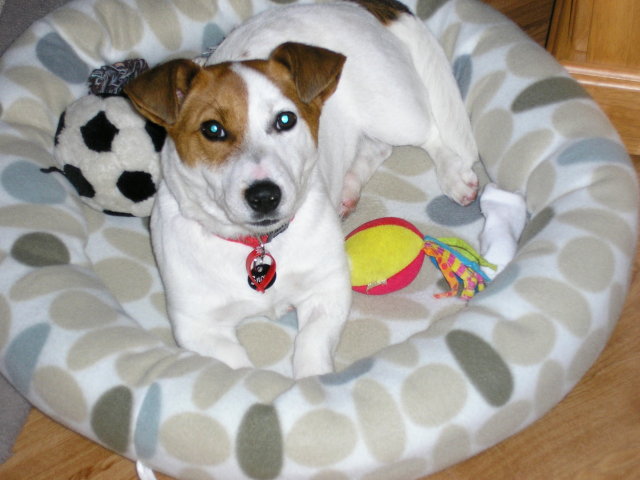 Jumping at the TV
QuestionQUESTION: Im sorry, you may have been asked thi
Jumping at the TV
QuestionQUESTION: Im sorry, you may have been asked thi
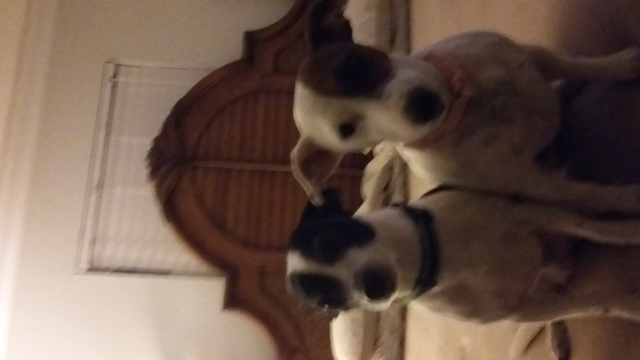 Purebred
Question
Coco 2 1/2 yes old swe No 5yrs old pureb
Purebred
Question
Coco 2 1/2 yes old swe No 5yrs old pureb
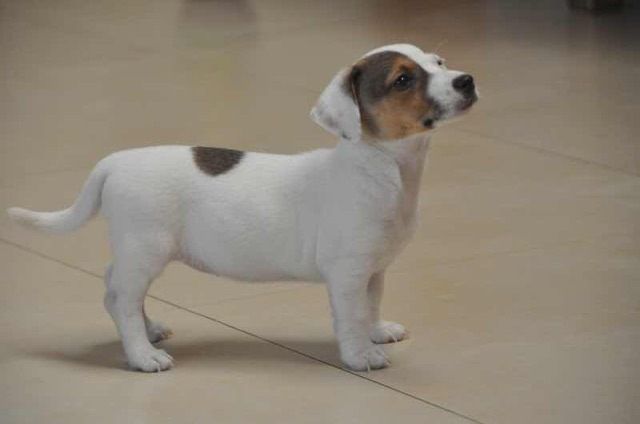 2 Jack Puppies 10 week old
Question
Lola Jack
Hi!....We just bought t
2 Jack Puppies 10 week old
Question
Lola Jack
Hi!....We just bought t
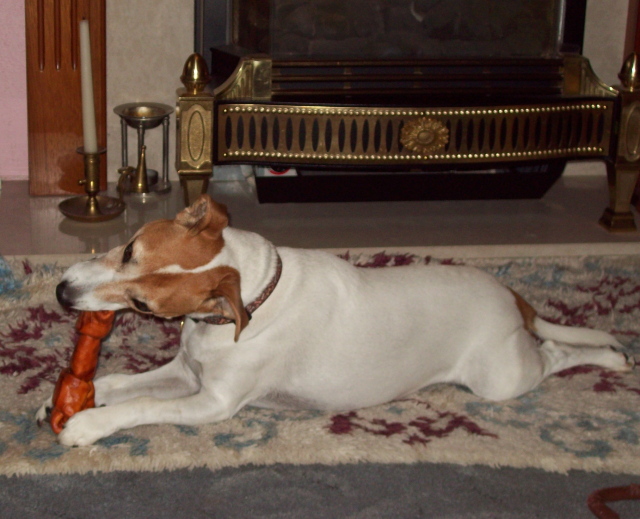 Parson Jack Russell Terrier bitch
Question
Pippa
My PJR bitch was 5 last December. She ha
Parson Jack Russell Terrier bitch
Question
Pippa
My PJR bitch was 5 last December. She ha
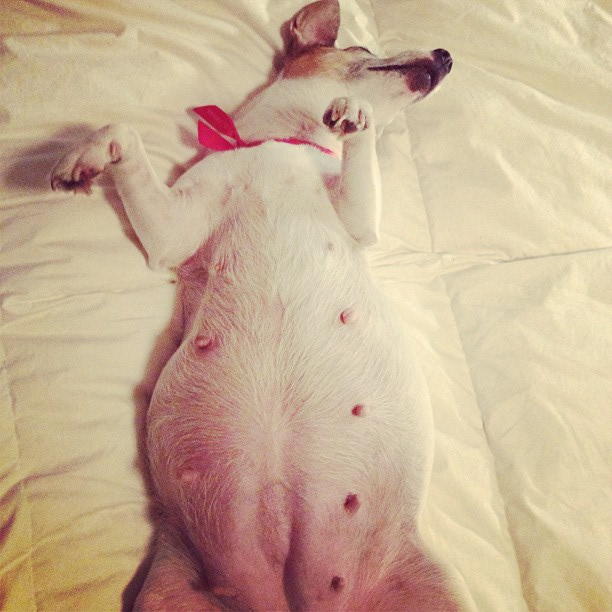 adopted a senior jrt who is pregnant??
Question
Sophie
Found you on google and was hopi
adopted a senior jrt who is pregnant??
Question
Sophie
Found you on google and was hopi